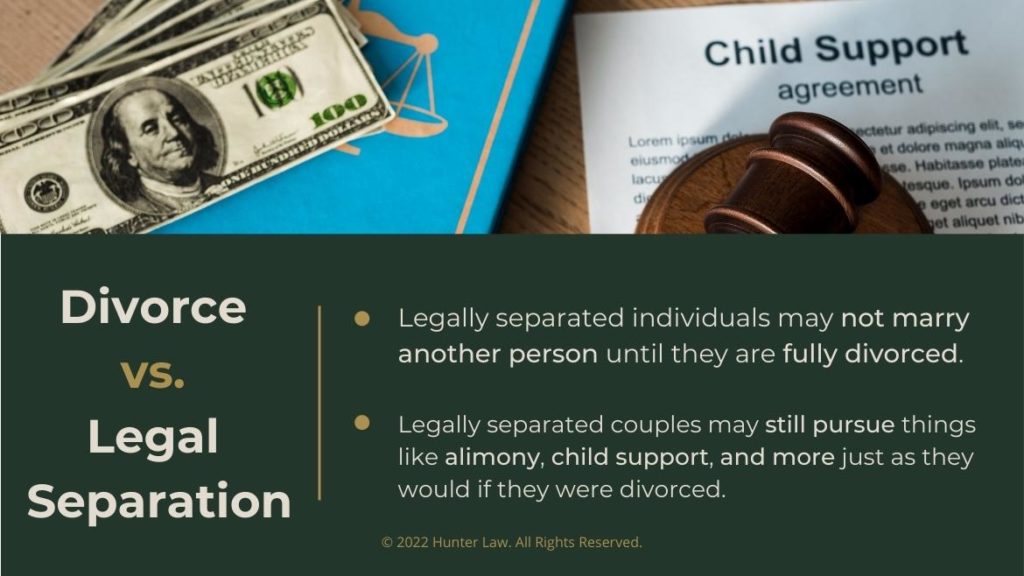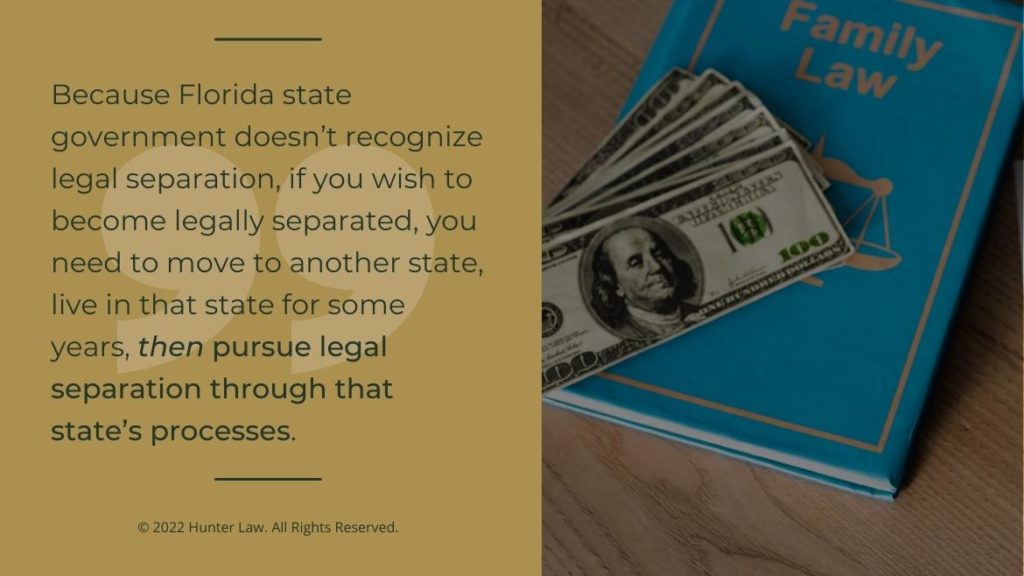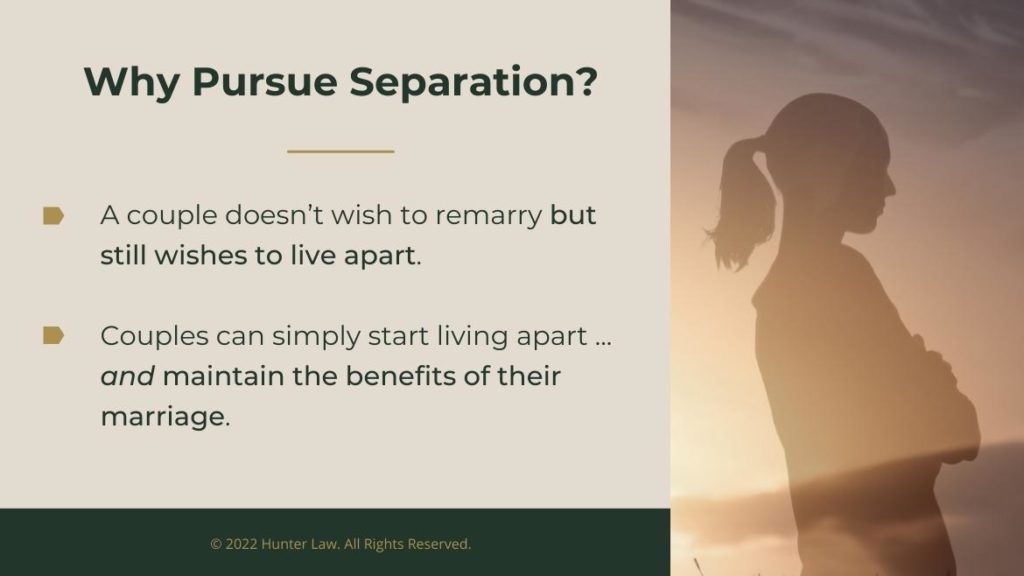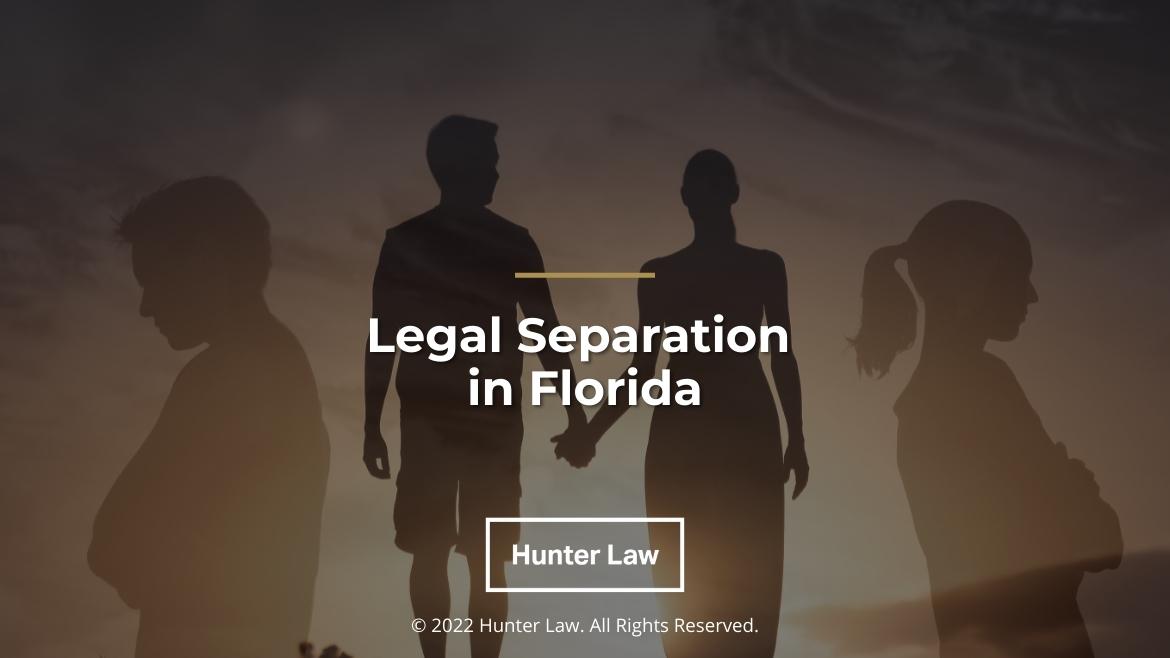Marriage doesn’t always work out, even in the best of times or with the best of intentions. However, married couples in Florida do not necessarily need to get a divorce if they wish to live apart and pursue separate lives. Let’s break down the topic of legal separation in Florida and what a legal separation entails vs. a divorce.
Legal Separation in Florida
Some states allow married couples to enter a state of legal separation. In such cases, the couple remains legally married but lives as though divorced or single from each other.
Florida has no legal separation process. In fact, the state government doesn’t recognize legal separation as a distinct state like “single” or “married”.
Therefore, couples may not get a legal separation in Florida under any circumstances. If you are married and wish to become legally separated, you need to move to another state, live in that state for some years, then pursue legal separation through that state’s processes.
Read more in our blog: Spousal Abandonment Laws in Florida

Divorce vs. Legal Separation in Florida
Couples may file for divorce in every US state. However, couples may wish to retain some of the legal and tax benefits of marriage while living separately, either due to irrevocable differences or career reasons.
The primary difference between a divorce and a legal separation is this: legally separated individuals may not marry another person until they are fully divorced.
However, legally separated couples may still pursue things like alimony, child support, and more just as they would if they were divorced.
Florida state law does allow for child support and alimony payments to be made between separated couples. But the separation is never legally distinguished or marked on state records the way it might be in other states.
Why Pursue Separation?
Sometimes, couples grow apart and realize they would be happier if they lived in different places. However, marriage provides several benefits like:
- Potentially lower taxes
- Legal allowances (i.e. each party can make medical decisions for the other if the injured party is unable to)
- Potentially easier access to good loans
- Some Social Security benefits
- Combined health insurance
- And more
If a couple doesn’t wish to remarry but still wishes to live apart, they may decide to pursue separation instead. While separated, they live as though divorced but retain some or all of the benefits above.
This is doubly true in Florida since legal separation is not recognized by the government. Couples can simply start living apart – working through issues about alimony or child support – and maintain the benefits of their marriage all the while.

Child Support Agreements While Separated
Fortunately, Florida does include laws for child support if both parents are separated or not living under the same roof. These laws are mostly intended for children that are born out of wedlock, but they also apply for married couples who decide to separate.
Couples may approach courts to sign off on voluntary child support agreements. These are exactly the same as child support agreements drafted for divorce proceedings. They answer questions regarding:
- How much child support is owed
- Who pays child support
- When child support is due
- When child support is terminated
However, married couples seeking a legal separation must approach courts voluntarily to receive these agreements. If a couple only makes a voluntary agreement between themselves, even if it’s in writing, it is not enforceable and one or both parties could decide to ignore the agreement at any time.
Alimony Agreements While Separated
The same holds true for alimony agreements. If a married couple wishes to separate but they agree that the higher earner will pay the lower earner, they may approach a marriage/family court for an alimony agreement.
Once more, the alimony agreement will be the same as if the couple was getting a full divorce. It will break down how much alimony is owed when the alimony needs to be paid, and so on.
Married individuals who earn less than their partner should be aware that alimony agreements are not required if they separate from their partner. Since the separation is not legally recognized, simply moving to a new residence is not enough for the court to demand payments from their partner.

How to Get a Divorce in Florida
Florida allows anyone to get divorced through “no-fault” grounds for dissolution. This means one or both parties do not necessarily need to do anything wrong for a divorce to proceed.
Technically, Florida divorces only occur for one of two reasons:
- The marriage is “irretrievably broken” between both parties
- The Respondent (to the divorce petition) is mentally incompetent
If the reason for the divorce is that the marriage is “irretrievably broken,” Florida family judges must ask if there is anything that can be done to repair the marriage. The judge may ask why the marriage is broken, but no specific reason is required.
To file for divorce in Florida:
- File either a Petition for Simplified Dissolution of Marriage OR a Petition for Dissolution of Marriage in your local Circuit Court
- Attend at least one court hearing (for an uncontested divorce procedure)
- Attend multiple court hearings if the divorce is contested (i.e. at least one element of the divorce must be discussed and agreed upon)
- Enter a Final Judgment Dissolving Marriage Under Simplified Procedure OR a Final Judgment Dissolving Marriage depending on what your judge decides
Divorce proceedings in Florida may take anywhere from several weeks up to several months in general. If both parties agree on the specifics of the divorce, proceedings usually go much more quickly.

Wrap Up
To recap, legal separations in Florida are not lawfully recognized. However, married partners may separate and live in different residences – and indeed, live entirely separate lives – at any point.
Furthermore, married partners may draft and agree to child support and alimony arrangements within their marriage if they do not wish to divorce. Florida family courts can order one spouse to pay the other child support or alimony with or without the agreement of the parties.
If you’re looking to get divorced or seek advice regarding child support and alimony agreements, contact Hunter Law today. As expert Tampa personal injury and family law attorneys, we are well-equipped and ready to assist with your needs.


